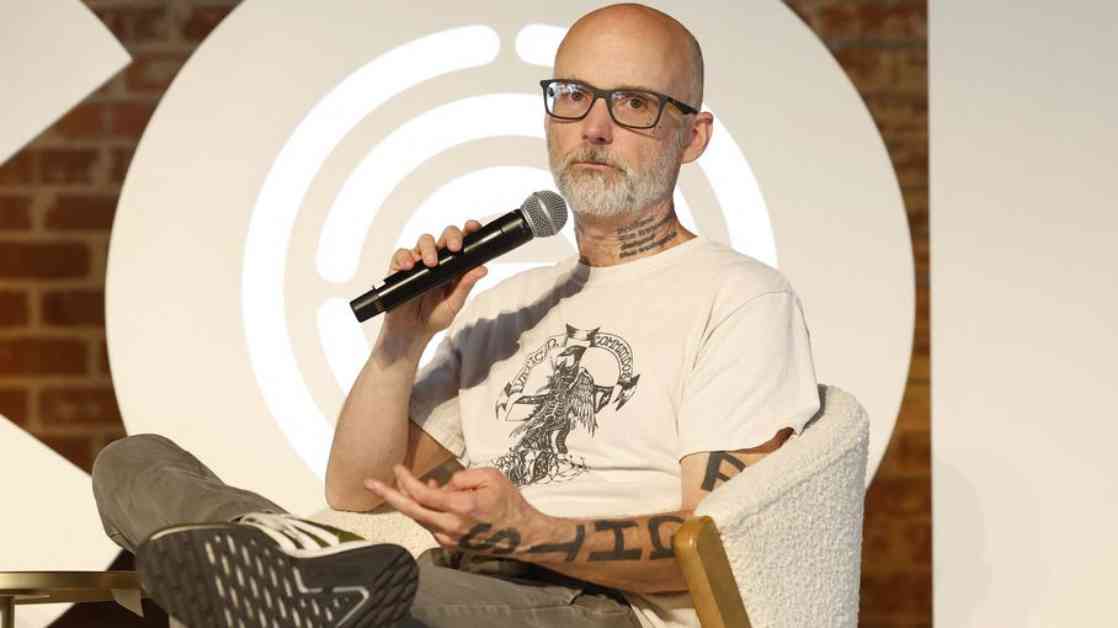Moby, the electronic music star, is making a comeback in Europe this fall for the 25th anniversary of his iconic album Play. He will be donating the proceeds from his concerts to organizations that share his passion for animal rights. Moby plans to focus 99% of his European tour in September on songs from his albums Play, 18, and Hotel, as he believes in giving the audience what they want to hear. The tour will kick off on September 24th at the Zénith in Paris, followed by other cities such as Manchester, London, Antwerp, Berlin, Düsseldorf, and Lausanne.
This marks Moby’s first concert tour in over a decade, and he will also be releasing a new album titled Always Centered At Night on June 14th. The album features collaborations with various artists and reflects Moby’s commitment to his label created in 2022. Known for his dedication to animal rights, Moby proudly displays tattoos on his arms that read “Animal” and “Rights,” as well as “Vegan for life” on his neck, emphasizing his 37-year commitment to veganism.
In addition to his music career, Moby actively engages in strategic advocacy for animal rights by identifying ways to make a difference in political, philanthropic, and media spheres. Despite his reservations about the current political landscape, he continues to lobby the American government and raise awareness about veganism. Moby criticizes both Joe Biden and Donald Trump, highlighting their contrasting attitudes towards animal welfare.
Having released an album titled Animal Rights in 1996 and directed the documentary Punk Rock Vegan Movie in 2023, Moby delves into his personal journey towards veganism and his deep-seated belief in the intrinsic value of animals. He reflects on his upbringing surrounded by chaotic individuals and expresses his disillusionment with human behavior. Moby’s decision to adopt a vegetarian and later vegan lifestyle was a pivotal moment in his life, leading him to open a vegan restaurant in Los Angeles, which unfortunately closed during the Covid crisis.
One of Moby’s new songs, Where is your pride?, features Benjamin Zephaniah, a British actor, singer, and poet known for his activism. The collaboration stemmed from their shared commitment to veganism, which evolved into a genuine friendship. Despite Zephaniah’s passing in late 2023, Moby cherishes the bond they shared and the creative collaboration that ensued.
As Moby prepares to embark on his European tour and release new music, his unwavering dedication to animal rights remains at the forefront of his artistic endeavors. Through his music, advocacy, and personal choices, Moby continues to inspire others to reflect on their relationship with animals and the planet as a whole.

